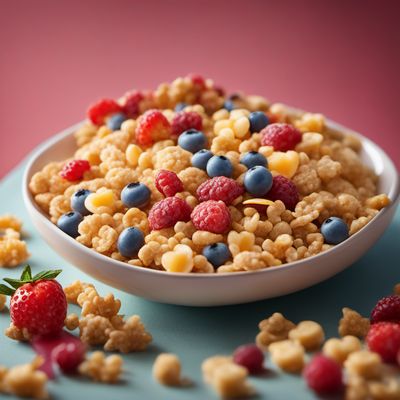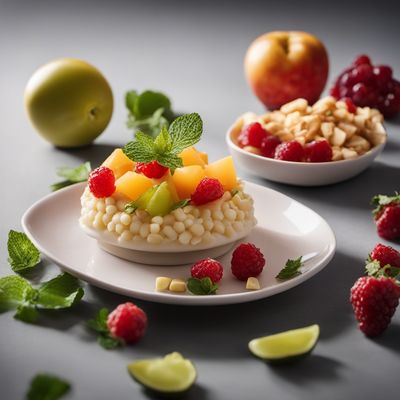
Ingredient
Ready-to-eat mixed meal for children
Nutrition-packed Delights for Little Ones
Ready-to-eat mixed meals for children are carefully crafted to provide a variety of flavors and textures that appeal to young palates. These meals are often made with a combination of cooked grains, vegetables, fruits, and proteins, providing a well-rounded nutritional profile. They are a convenient option for busy parents and can be easily customized to meet specific dietary needs.
Origins and history
Ready-to-eat mixed meals for children emerged as a response to the growing demand for convenient and nutritious food options for busy parents. They are designed to provide a balanced combination of essential nutrients, including carbohydrates, proteins, healthy fats, vitamins, and minerals. These meals are often fortified with additional nutrients to support the growth and development of children.
Nutritional information
Ready-to-eat mixed meals for children are packed with essential nutrients, including proteins, carbohydrates, healthy fats, vitamins, and minerals. They are often fortified with additional nutrients like iron, calcium, and vitamin D to support the growth and development of children. These meals are also portion-controlled to ensure appropriate calorie intake for young ones.
Allergens
Ready-to-eat mixed meals for children may contain allergens such as wheat, soy, dairy, eggs, or nuts. It is important to carefully read the ingredient list and allergen information provided on the packaging to ensure the safety of children with food allergies or intolerances.
How to select
When selecting ready-to-eat mixed meals for children, look for products that are made with high-quality ingredients and have minimal additives or preservatives. Opt for options that are age-appropriate and meet the specific dietary needs of your child. Consider factors such as taste, texture, and nutritional content when making a selection.
Storage recommendations
Ready-to-eat mixed meals for children should be stored according to the instructions provided on the packaging. Most products require refrigeration to maintain their freshness and quality. It is important to check the expiration date and consume the meals before they expire to ensure optimal taste and nutritional value.
How to produce
Ready-to-eat mixed meals for children are produced by specialized companies that follow strict quality control measures to ensure the safety and nutritional value of their products. The production process involves sourcing high-quality ingredients, cooking, and packaging the meals in a way that preserves their freshness and flavor. It requires expertise in nutrition, food science, and culinary arts.
Preparation tips
Ready-to-eat mixed meals for children can be served as is or heated according to the instructions provided on the packaging. They can be enjoyed as a standalone meal or paired with additional fruits, vegetables, or proteins to enhance their nutritional value. It is important to follow the recommended portion sizes and age-appropriate serving suggestions.
Substitutions
There are no suitable substitutions for ready-to-eat mixed meals for children, as they are specifically formulated to provide a balanced combination of essential nutrients for young ones.
Culinary uses
Ready-to-eat mixed meals for children are commonly used as convenient meal options for busy parents or as a backup for times when cooking from scratch is not feasible. They are often served as a quick lunch or dinner option and can be easily customized with additional ingredients or seasonings to suit individual preferences.
Availability
Ready-to-eat mixed meals for children are widely available in supermarkets, grocery stores, and online retailers. They can be found in the baby food section or the refrigerated aisle. These meals are commonly available in countries with a high demand for convenient and nutritious food options for children.
More ingredients from this category

Ready-to-eat meat-based meal for children
Wholesome Delights: Nutritious and Convenient Meat-Based Meals for Kids

Ready-to-eat cereal-based meal for children
Wholesome Delights: Nourishing Cereal Meals for Growing Kids

Ready-to-eat fish-based meal for children
Ocean Delights: A Nutritious and Delicious Meal for Little Ones

Ready-to-eat vegetable-based meal for children
Wholesome Delights: Nutrient-Packed Meals for Little Ones

Ready-to-eat dairy-based meal for children
Convenient and Nutritious: Ready-to-Eat Dairy-Based Meal for Children

Ready-to-eat fruit-based meal for children
"Fruity Delights: A Nutritious Meal for Little Ones"